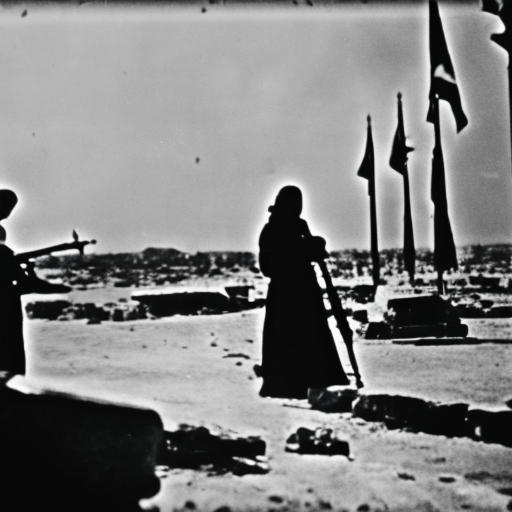Summary:
The 1948 Arab-Israeli War, also known as the War of Independence or Nakba, was a conflict between the newly established State of Israel and a coalition of Arab states. It began immediately after the United Nations approved the partition plan for Palestine, which called for the creation of separate Jewish and Arab states. The war resulted in the establishment of Israel as an independent state and the displacement of hundreds of thousands of Palestinians.
Background:
The conflict in Palestine can be traced back to the late 19th century when Zionist Jews began immigrating to the region with the goal of establishing a Jewish homeland. Tensions between Jewish immigrants and the Arab population escalated over the years, leading to sporadic violence. In 1947, the United Nations proposed a partition plan that would divide Palestine into separate Jewish and Arab states, with Jerusalem under international administration. The plan was accepted by Jewish leaders but rejected by Arab states and Palestinian Arabs.
Outbreak of War:
On May 14, 1948, the British Mandate for Palestine expired, and the State of Israel was declared. Immediately, Arab states, including Egypt, Jordan, Syria, and Iraq, launched military operations to prevent the establishment of Israel. The Arab forces were poorly coordinated and lacked a unified command, while the Israelis had a more organized military and were supported by Jewish militias.
Course of the War:
The war can be divided into several phases. Initially, the Arab forces focused on capturing Jewish settlements and cutting off supply routes. However, their efforts were largely unsuccessful, and the Israelis managed to hold their ground. As the war progressed, the Israelis launched counteroffensives and gained control over more territory. The most significant turning point came in July 1948 when Israeli forces successfully defended Jerusalem against Arab attempts to capture the city.
International Involvement:
The international community played a significant role in the conflict. The United States initially supported the partition plan and recognized Israel shortly after its declaration. The Soviet Union also recognized Israel and provided military support. Arab states, on the other hand, received assistance from other Arab nations and volunteers from various Muslim countries. The war also saw the involvement of foreign military advisors on both sides.
Consequences:
The 1948 Arab-Israeli War had far-reaching consequences. Israel emerged as an independent state, and the war became a defining event in its history. The war also resulted in the displacement of hundreds of thousands of Palestinians, who became refugees in neighboring Arab countries. The issue of Palestinian refugees remains a central point of contention in the Israeli-Palestinian conflict. Additionally, the war set the stage for future conflicts between Israel and its Arab neighbors, shaping the geopolitical landscape of the Middle East.
Conclusion:
The 1948 Arab-Israeli War was a pivotal event in the history of the Middle East. It marked the establishment of Israel as an independent state and led to the displacement of hundreds of thousands of Palestinians. The war had significant international involvement and set the stage for future conflicts in the region. The consequences of the war continue to shape the Israeli-Palestinian conflict and the broader geopolitical dynamics of the Middle East.












